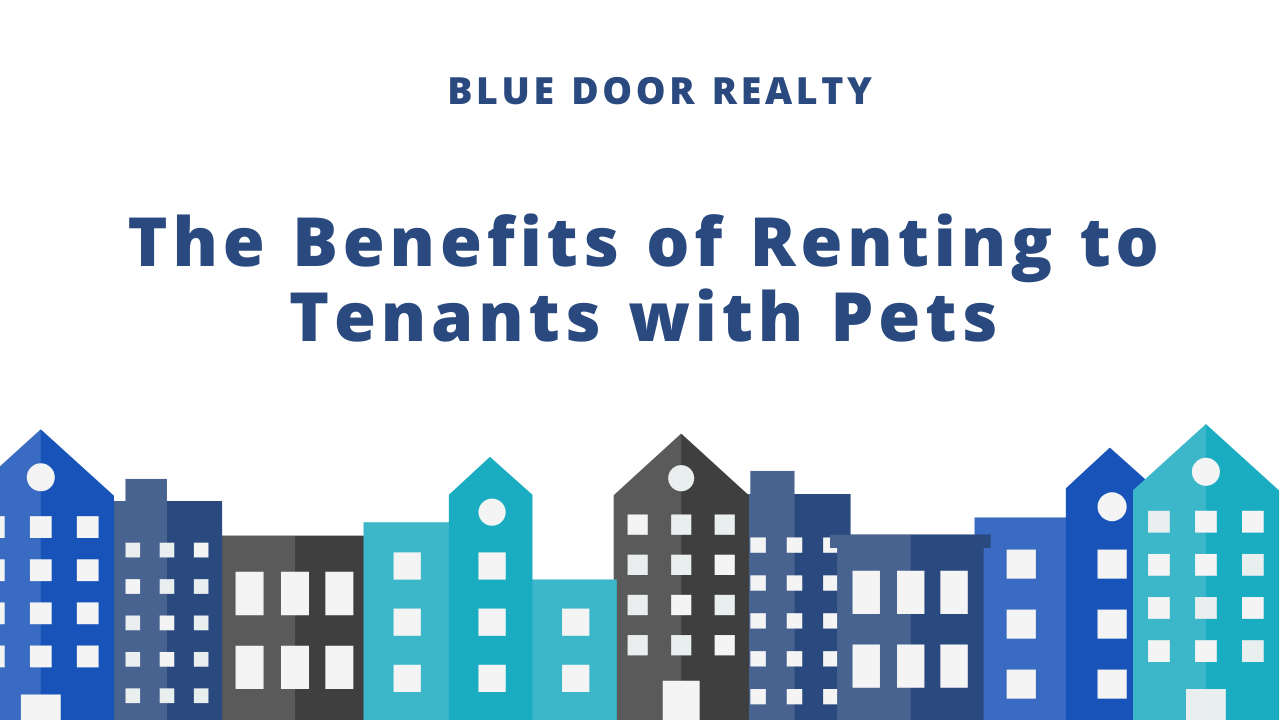When choosing tenants for your rental property, you come across many questions. There are enough things to consider when simply renting out to people, but what about leasing your property to tenants with pets? Have you ever considered the benefits of having pets in your rental property?
This post is meant to guide you on the benefits and risks of allowing pets on the property. While additionally, adding some insights to help you decide on whether or not to invite pets into your rental space.
Advantages of a Pet-Friendly Rental
There’s a lot of skepticism when it comes to making the decision about allowing pets to live in your rental property. As a landlord, you are within reason to be protective over your property assets. You have invested a lot of personal savings and maybe even taken out loans to secure the property. ]
However, if you could switch from the mentality of “protecting the property” and start seeing the benefits, you could have a huge edge over the competition.
Opportunity to Increase Income
People who have pets have a drive within them to keep their four-legged friends no matter what. Pets are a part of the family. That means that tenants are more likely to offer a little financial incentive, or invest in pet insurance, in order to keep their pets close. They are almost always willing to go the extra mile and pay the pet rent, pet fee, or pet deposit.
As the property owner, you will benefit financially from the little guy being brought in. The only thing that remains is for you to ensure that your charges comply with the state law. Ignorance of the law is not a defense and may result in you being fined or having to appear in court.
Gain Happy Tenants
Every property owner’s dream is to see that their tenants are happy. Keeping your tenants happy comes with tremendous benefits like honest feedback, renter retention, and satisfaction with the service you are providing. Allowing their pets to stay with them, makes tenants feel more at home and therefore much happier.

Allowing tenants to have a companion makes them feel accompanied and ensures that they’ll stay longer in your rental space.
More Responsible Tenants
Taking care of pets is hard work. There are vet checkups, scheduled feedings, and regular exercise. That’s quite the commitment and discipline needed in order to maintain such a routine. This kind of focus and dedication often ripple out to other areas of life, ensuring you have a responsible and long term tenant.
A tenant of this type is more likely to ensure that their rental space is clean and well maintained. This type of responsibility will save you in matters of conflict, repairs and maintenance. Renting to this type of person will ensure that you save time and money in both the long and short term.
Make sure both your tenants and their pets participate in pet screening, to ensure responsible renters.
Better marketing
When trying to attract new tenants branding, word-of-mouth and distribution rule above all in regards to advertising your rental property. If people don’t know that you exist and that you are present in the market, then you are useless to any potential renter or tenant. The best marketing you can have is that which stems from your renters.

Renters with pets will perceive you as someone willing to take risks in order to make them happy. Your pet renters will start spreading the word, which will help you market to other responsible tenants in the future.
Risks of Having a Pet-Friendly Rental
It’s realistic that there are risks that come with renting to tenants with pets. However, as a landlord, you are in control and can take charge of the situation by thinking the situation through before you open your rental to pets. As long as you have backup plans to deal with damage and risk, you have nothing to worry about.
With that said, here are some issues you might encounter:
Property Damage
Property damage is a major obvious risk involved with handling pets. Pets are not always easy to control, and can get into trouble they aren’t supposed to when the tenant isn’t home. Any collateral damage caused by the pet will inflict expenses on repair and maintenance in the unit.
Pets are known to chew a lot of things like carpets, mattresses, and wooden furniture. They can have accidents, leaving stains on carpets and floors.

They could also scratch walls and leave permanent marks on doors and the floor. While these are all repairable, they do require more money in the maintenance and repair budgets.
Possible injuries
You have to consider that when animals are triggered or undisciplined, they can end up injuring people and other animals in the unit. It’s important to entertain this possibility and think of solutions to handle it. Rules can be written up in the lease to ensure the safety of your other tenants. An animal injuring a tenant or another pet is considered an emergency.
You could also ask the potential tenant for evidence to see if the pet has undergone training. Such measures will give you peace of mind and allow your tenants to co-exist safely.
Encountering Pet Odors
Complaints about pet odors and smells are quite common and they can affect the response you get about your property. This is especially true if some of the renters are not pet owners. It’s better to create a suitable environment that is ideal for the larger percentage of tenants. Thankfully, pet odors are not impossible to clean.
Including rules in the rental agreement about keeping all animal related odors to a minimum is one solution landlords can turn to. For example, you can require that all indoor animals are litter trained, and all business done outside be cleaned up by the tenant.
Bonus tip
It’s very important that you have an attached pet policy in a leasing agreement. Tenants don’t want to be surprised by unknown fees and policies. They want the truth in the clearest way possible.

A smart decision would be to create a document that infuses all of the state laws and the consequences implied when they violate the signed agreement. Such agreements examine and cover all the questions the tenant might have about keeping their pet in your rental unit.
Conclusion
In our experience, the benefits of leasing your property to tenants with pets supersede the risk. You can enjoy increased rental income and also the benefit from more responsible and financially capable renters.
Should the management of your rental property be too much, rely on the experts from Blue Door Realty. We offer reputable residential property management for property owners across New Mexico. Get in touch with us today!

